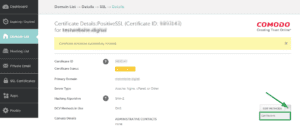Have you heard whispers about AnonIB online, a platform where anonymity reigns supreme? Curiosity might be piqued, but before diving in, it’s crucial to understand what AnonIB is and the potential risks it might pose. This blog post delves into the world of AnonIB, exploring its features, the types of content you might encounter, and why responsible online behavior is essential.
Introduction:
AnonIB has become a hot topic online. It’s an imageboard, a website where users anonymously post and share images without needing to register. Anonymity can be liberating, but it also comes with a responsibility to use online spaces safely and ethically.
This blog post isn’t about endorsing AnonIB, but rather providing information and empowering you to make informed choices about your online experiences. We’ll explore what AnonIB is, the types of content you might find there, and why critical thinking is crucial when navigating anonymous platforms.
2. A Glimpse into AnonIB: Anonymity and Controversy:
AnonIB’s origins are a bit murky, but it shares similarities with other anonymous imageboards like 4chan. Anonymity allows users to post freely without revealing their identities. This can be a double-edged sword:
Benefits:
It can foster a sense of community and open expression for some users.
Drawbacks:
Anonymity can also embolden users to engage in harmful behavior with less fear of consequences.
So, what kind of content can you expect on AnonIB? It’s a mixed bag:
a. Funny memes and lighthearted content might make you chuckle.
b. Explicit images and potentially offensive content can be disturbing and upsetting.
c. Be aware that AnonIB is not age-restricted, so encountering inappropriate content is a risk.
d. A particularly concerning aspect of AnonIB is the sharing of “wins”, which refers to posting explicit photos of ex-partners without their consent. This is a form of revenge porn and can have serious consequences for the victim.
The unpredictable nature of AnonIB’s content is a major concern. You never quite know what you’ll stumble upon.
Beyond the Images: The Darker Side of AnonIB:
The allure of anonymity on AnonIB can have some negative consequences:
a. Cyberbullying and Harassment:
The lack of accountability can make AnonIB a breeding ground for cyberbullying and harassment. Users might feel emboldened to say things they wouldn’t dare to say in person.
b. Revenge Porn and Exploitation:
As mentioned earlier, AnonIB is a platform for sharing revenge porn, causing emotional distress and reputational damage to victims.
c. Exposure to Inappropriate Content:
There’s a high chance of encountering disturbing or age-inappropriate content on AnonIB. This can be particularly harmful for younger users.
d. Normalization of Harmful Content:
The constant exposure to harmful behavior on AnonIB can lead to a desensitization and normalization of cyberbullying, revenge porn, and other online harassment.
Breaking Free from the Anonymity Trap: Alternatives for Growth:
The world is vast and full of opportunities for positive online interaction and personal development. Here are some alternatives to AnonIB that can help you explore your interests and connect with others in a safe and healthy way:
a. Open Communication:
The most important alternative is open communication with trusted adults. Talk to your parents, teachers, or mentors about your online experiences. They can offer guidance and support as you navigate the digital world.
b. Positive Online Communities:
The internet is full of vibrant online communities focused on a variety of interests. Look for groups or forums dedicated to hobbies like photography, music, or gaming. These can be great places to connect with like-minded people and share your passions.
c. Engaging Activities:
Don’t underestimate the power of offline activities! Pursue hobbies, volunteer in your community, or participate in sports. Engaging in activities you enjoy can boost your self-esteem and provide a healthy outlet for self-expression.
Remember, AnonIB doesn’t offer the only path to online connection or personal exploration. There’s a whole world out there waiting to be discovered in a safe and positive way!
Digital Citizenship 101: Staying Safe on AnonIB and Beyond:
Even if you choose to avoid AnonIB altogether, it’s important to be aware of online safety practices in general. Here are some essential tips to keep you safe online, especially on anonymous platforms:
a. Critical Thinking:
Don’t take everything you see online at face value. Question the source and purpose of content before engaging with it. Is it funny or offensive? Is it trying to manipulate you in some way?
b. Beware of Sharing Personal Information:
This is a golden rule for online safety! Never share personal details like your address, phone number, or real name on AnonIB or any other anonymous platform.
c. Reporting Inappropriate Content:
If you encounter harmful or inappropriate content on AnonIB or elsewhere online, report it! Most platforms have mechanisms for reporting abuse.
d. Cybersecurity Awareness:
Basic cybersecurity practices go a long way. Use strong passwords and enable two-factor authentication for your online accounts. Be cautious about clicking on suspicious links or downloading attachments from unknown sources.
By being mindful and taking these precautions, you can minimize the risks associated with anonymous platforms and create a safer online experience for yourself.
Conclusion: Beyond the Anonymity:
AnonIB offers a glimpse into the world of online anonymity. It can be a space for humor and lighthearted content, but it also harbors a dark side. Revenge porn, cyberbullying, and exposure to inappropriate content are all real dangers associated with this platform.
The key takeaway is to be a responsible digital citizen. Think critically about the content you consume online, be mindful of what you share, and prioritize your safety. Remember, there are plenty of positive ways to connect with others and explore your interests online.
Looking Beyond AnonIB:
a. Open communication:
Talk to trusted adults about your online experiences.
b. Positive alternatives:
Engage in hobbies, join online communities, or participate in offline activities.
c. Digital citizenship:
Be mindful of what you share online and practice safe browsing habits.
By following these tips, you can navigate the digital world with confidence and create a positive online experience for yourself. Remember, you are not alone. There are resources available to help you stay safe and explore the internet responsibly.




